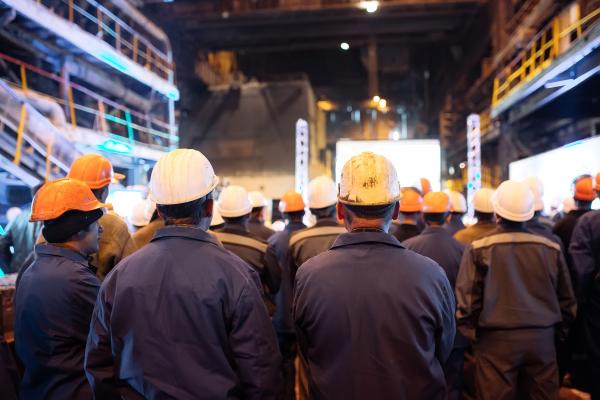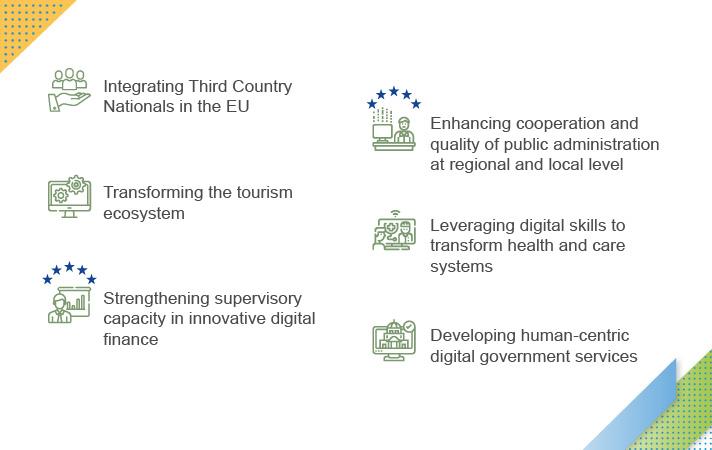The Technical Support Instrument (TSI) is the EU programme that provides tailor-made technical expertise to EU Member States to design and to implement reforms at the national level, with an emphasis on the green and digital transitions. The TSI also supports the preparation and implementation of Recovery and Resilience Plans. TSI 2022 main novelties are the multi-country projects, geared at addressing common issues among Member States thereby underlying the EU added-value of the instrument, and the "Flagship" projects, supporting reforms which are largely needed across Member States and are in line with the EU priorities.
Initiated in 2021, the TSI is the successor of the Structural Reform Support Programme (SRSP). Since 2017, both programmes have helped design, develop and implement over 1500 reform projects in 27 Member States.
16 NEW PROJECTS SELECTED UNDER TSI 2022
With the second round of the TSI, the Commission will support Italy with 16 projects in the areas of Digital public administration, health, gender mainstreaming, gender inequalities, migrant integration, just transition, digital finance, social security, sustainable tourism, labour market and youth unemployment, sustainable mobility, public finance, education and teaching workforce. 3 of those projects are multi-country projects.
Examples of new projects adopted include:
60 COMPLETED AND ONGOING REFORM PROJECTS
Italy has so far benefited from 60 projects financed by the TSI or its predecessor, the Structural Reform Support Programme (SRSP). This support has addressed a broad range of policy areas, including fiscal reform, infrastructure planning, green transition, labour market reform, public administration reform and the national digital strategy.
A particular focus has been on the public administration, labour market challenges, judicial reform and anti-corruption measures. To date, 27 projects have been successfully concluded

The European Commission supported Italy in protecting consumers and enhancing financial literacy through financial education programmes.

The European Commission supported Italy in its efforts to fight labour exploitation of workers, particularly in the agriculture and construction sectors.

he European Commission supports Italy in enhancing the analytical capacity to design and implement an environmental tax reform.


